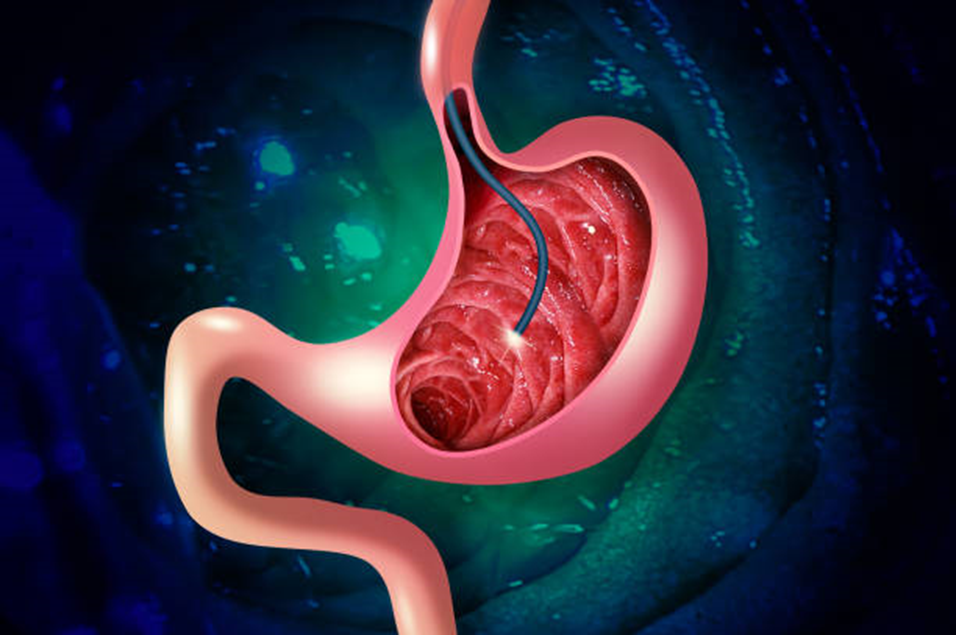After an endoscopy, you might feel a bit uncomfortable, but it's usually nothing to worry about.
Here's what you might experience:
1. Feeling Bloated: You might experience a sensation of fullness in your abdomen, similar to having extra air in your belly. This happens because air is introduced into your stomach during the procedure. Don't worry; it'll ease as you naturally release the air by burping or passing gas.
2. Sore Throat: After the tube passes through your mouth, you may feel some discomfort in your throat. It's like a scratchy feeling. Drinking warm beverages or using throat lozenges can bring relief and soothe the discomfort.
3. Feeling Queasy: Some individuals might feel a bit queasy or nauseous after the procedure, especially if they received sedation. Taking it easy and avoiding heavy meals can help calm your stomach and alleviate the queasiness.
4. Minor Bleeding: Occasionally, there may be a small amount of bleeding from the biopsy site. It's typically not a cause for concern and tends to stop on its own without any intervention.
To help you feel better after the endoscopy, your doctor might suggest:
1. Take it Easy on Your Stomach: Stick to light and easy-to-digest foods like soup or crackers for a while. This can help calm your stomach and make you feel better.
2. Go Easy on Yourself: Avoid doing any heavy lifting or tough activities for the rest of the day. Your body needs time to rest and recover after the procedure.
3. Medications Can Help: If you're feeling uncomfortable, your doctor might give you some medicine to make you feel better. Just be sure to take it exactly as they tell you.
Following these simple tips can help your body heal and get you back to feeling like yourself again in no time after your endoscopy.
Preventing Complications: Essential Tips for a Smooth Recovery
Here are some practical tips to help minimize the risk of complications and promote healing:
1. Stay Hydrated: Drink plenty of fluids, such as water or clear soups, to stay hydrated after the procedure. Proper hydration helps flush out any remaining sedation medication from your system and supports overall healing.
2. Prioritize Rest: Allow your body ample time to rest and recuperate following the endoscopy. Adequate rest is essential for the body to recover from the procedure and regain its strength.
3. Follow Dietary Recommendations: Adhere to any dietary guidelines provided by your healthcare provider after the endoscopy. This may include avoiding spicy or acidic foods, as well as refraining from alcohol consumption for a specified period.
4. Engage in Gentle Activity: Participate in light physical activities, such as short walks or gentle stretching exercises, to promote circulation and aid in digestion. However, avoid strenuous exercise until you've been cleared by your healthcare provider.
5. Manage Medications Carefully: Take any prescribed medications exactly as directed by your doctor, including dosage and timing. Be mindful of potential side effects and contact your healthcare provider if you experience any adverse reactions.
6. Avoid Smoking and Alcohol: Refrain from smoking and consuming alcohol during the recovery period, as these substances can impair healing and increase the risk of complications.
By following these tips for preventing complications, you can support your body's healing process and minimize the likelihood of experiencing any post-endoscopy issues. Remember to consult with your healthcare provider if you have any concerns or questions about your recovery.
Remember to fast before your appointment to ensure a smooth experience.
Rest assured, our team at LGI Hospital prioritizes your safety and comfort above all else. Your well-being is our primary concern throughout your endoscopy journey.
Exploring Advanced Endoscopic Techniques

In recent years, advances in endoscopic technology have propelled gastroenterological care into new frontiers, offering patients innovative solutions for diagnosis and treatment. Let's take a closer look at some of the cutting-edge techniques that are transforming the landscape of endoscopy:
1. Endoscopic Ultrasound (EUS): This technique combines endoscopy with high-frequency sound waves to produce detailed images of the digestive tract and surrounding organs. EUS allows for precise visualization of structures such as the pancreas, liver, and lymph nodes, making it invaluable for diagnosing conditions like pancreatic cancer and gastrointestinal tumors.
2. Endoscopic Retrograde Cholangiopancreatography (ERCP): ERCP is a specialized procedure used to examine the bile ducts and pancreatic duct. By combining endoscopy with X-ray imaging, clinicians can diagnose and treat conditions such as gallstones, strictures, and pancreatitis with minimally invasive techniques, reducing the need for traditional surgical interventions.
3. Endoscopic Mucosal Resection (EMR): EMR is a minimally invasive procedure used to remove abnormal or precancerous tissue from the digestive tract lining. By utilizing specialized instruments attached to the endoscope, clinicians can safely excise lesions without the need for surgery, offering patients a less invasive alternative with faster recovery times.
4. Endoscopic Submucosal Dissection (ESD): ESD is an advanced technique used to precisely dissect and remove deep-seated lesions within the gastrointestinal tract. By employing specialized tools and techniques, clinicians can perform complex procedures with greater accuracy and efficacy, offering patients enhanced treatment options for conditions such as early-stage gastrointestinal cancers.
Embracing Innovation at LGI Hospital Nagpur
At LGI Hospital, we are committed to staying at the forefront of medical innovation, offering our patients access to the latest advancements in endoscopic technology. Our team of skilled gastroenterologists and endoscopists are trained in performing advanced procedures such as EUS, ERCP, EMR, and ESD, ensuring that our patients receive the highest standard of care with minimal discomfort and downtime.
With state-of-the-art facilities and a patient-centric approach, LGI Hospital is dedicated to providing exceptional endoscopic services that prioritize patient safety, comfort, and outcomes. Trust us to guide you through your gastrointestinal journey with expertise, compassion, and a commitment to excellence.




Share this page with your family and friends.